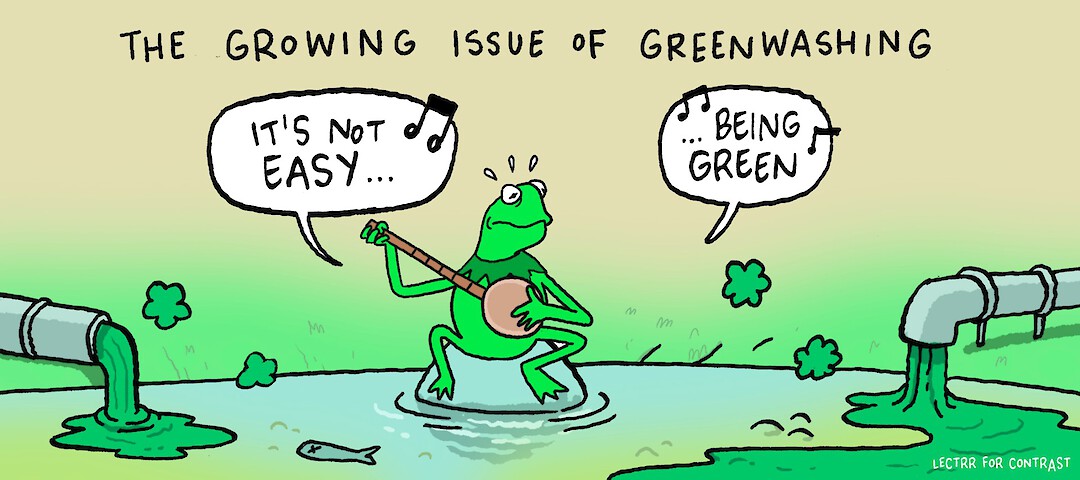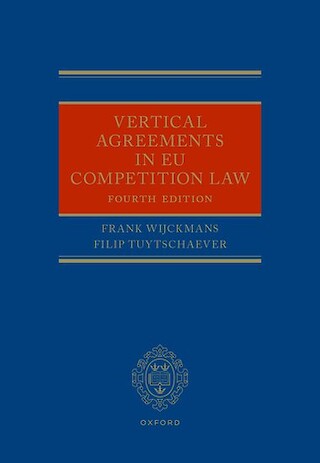In the Picture

Red light for greenwashing
May 2023Imagine…
Your company wants to do its bit for the environment and has recently worked hard to reduce the amount of harmful chemicals used in its production process.
Your marketing team finds these changes in the production process ideal for launching a marketing campaign. The proposal is to claim centrally on the packaging of your products that they are "environmentally friendly". After all, you see that your competitors are also increasingly making these kinds of environmental claims in their advertising materials.
Your legal department pulls the emergency brake and reminds you of the European ban on greenwashing. Greenwashing? Surely your company is genuinely committed to eco-friendly production?
A brief clarification.
With the transposition of the European Unfair Commercial Practices Directive, all EU member states have a ban on misleading commercial practices. This prohibition of misleading commercial practices, including advertising, is a broad one: a commercial practice is misleading if it is likely to deceive the average consumer and cause or is likely to cause the consumer to purchase products that the consumer would not otherwise have purchased.
On 24 March 2023, the European Commission presented a proposal for a directive specifically addressing environmental claims. This proposal will require companies to be more accurate and transparent when making such claims. The aim is to protect consumers from "greenwashing", a practice where products are presented as more environmentally friendly than they actually are.
An "environmental claim" includes any message or expression, in any form, that refers to the environmental impact of goods, services or an organisation, for example "sustainable", "environmentally friendly", "100% recycled plastic" or "carbon neutral".
The proposal includes a list of specific terms that companies can and cannot use in their environmental claims. Companies will also be required to provide specific information to back up their environmental claims.
The proposal also includes a specific ban on misleading or exaggerated environmental claims and a rating system to check whether environmental claims comply with the new rules. Companies wishing to use an environmental claim will have to get these approved by competent national authorities before placing the products on the market.
Companies will need to satisfy a number of specific requirements when making environmental claims, including:
- Indicating whether the claim relates to the whole or part of the product, such as the packaging.
- Providing specific information to support claims, such as the source of materials and the environmental impact of the production process.
- Avoiding unfounded comparisons with other products that are not produced in the same way or do not have the same properties.
- Taking into account all environmental impacts relevant for assessing environmental performance.
So in future, your marketing team will not only have to consider the general ban on misleading commercial practices, but specifically substantiate the "environmentally friendly" claim, including on the basis of information on how the product was produced and why it can be considered "environmentally friendly".
Under the proposal, companies that violate the new rules could be punished with fines or other sanctions imposed by the national authorities of the EU member states.
Concretely.
- Misleading commercial practices are prohibited in all member states through the transposition into national law of the European Unfair Commercial Practices Directive.
- On 24 March 2023, the European Commission tabled a proposed directive to ban greenwashing and misleading environmental claims specifically.
- The proposal places obligations on companies wishing to make environmental claims to ensure that these claims are reliable and scientifically substantiated.
- Member states must impose appropriate and effective sanctions in case of breaches of the rules.
- The proposal must now be approved by the European Parliament and the Council of the European Union through the ordinary legislative procedure.
Want to know more?
Please consult our website or contact one of our team members if you have questions or require more information:












